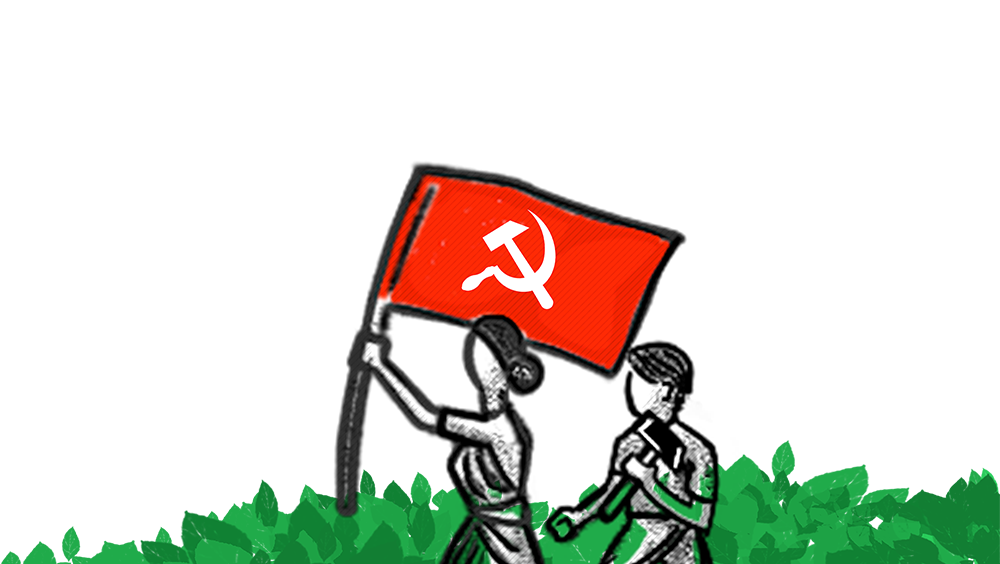Neo-liberal economics that defined the world order for the last four decades, with its foundations in globalisation, trade linkages, and interconnectedness, finds itself in a quandary with Donald Trump coming to the presidency in America.
Since assuming office, Trump has consistently threatened countries with counter-tariffs, claiming that the US has faced discrimination in the hands of the rest of the world. The Bretton Woods consensus—which the US itself pushed the world to adopt through institutions like the World Bank, the World Trade Organisation (with GATT as its predecessor), and the International Monetary Fund (IMF)—is now being bulldozed by the very country that created it. The US is now afraid that it has lost the globalisation battle to China, even the minor gains made by India in sectors like IT, pharmaceuticals and the like are an anathema to a desperate Trump presidency. Hence this armtwisting of India into greater purchases of American goods and services and a desperate recourse to tariff threat and trade war even at the risk of triggering a global recession.
The Modi government, which openly batted for "Ab Ki Baar Trump Sarkar", has silently capitulated to the American tariff threats. Unlike other developing and poorer countries that have shown the spine to resist these tariffs, the BJP-led NDA government has surrendered the economic interests of the country to Trump and his corporate allies. Instead of challenging Trump's America-first tariff thuggery, the Modi government is busy appeasing the Trump Administration.
Terming April 2nd as Liberation Day, Trump has imposed tariffs to the tune of 26–27% on key Indian commodities—affecting sectors crucial to India’s growth and economic stability.
The range of commodities whose trade to America will be affected by Trump’s move includes:
- Electronics ($14 billion),
- Gems and jewellery ($11.88 billion),
- Fisheries and processed seafood ($2.58 billion),
- Chemicals ($5.71 billion).
Similarly, agricultural products like basmati rice, shrimp, and buffalo meat—comprising 46% of India’s farm trade with the US will be impacted. Other than this, US imports spices, tree nuts (primarily cashews), essential oils, fresh and processed fruits and vegetables. This wide range of agricultural exports from India will have a diverse impacts on the livelihood of farmers across the country. Notably, pharmaceuticals ($9 billion in exports annually) and semiconductors were exempted by the Trump administration.
Expecting these harsh tariff measures, the Union Government had been negotiating a trade deal with the US, where it was willing to reduce tariffs on up to $23 billion worth of US goods in sectors like textiles, chemicals, jewellery, and gems.
What is ironic is that despite the Modi government’s willingness to bow down to the US administration with these concessions, Trump still went ahead and imposed the tariffs.
This should have woken the Modi government from its misplaced dreams of placating the Trump administration. However, its mild and markedly non-confrontational statements that “negotiations are still on” and that “the government will protect Indian interests” only further demonstrate the meek surrender and capitulation of the Modi government.
The export driven sector is labour intensive, employing low-income workers. Any changes in the tariff regime will impact the profit margins thereby making retrenchment of workers inevitable. Take the gems and jewellery sector for example— it employs over 5 million people from economically marginalised backgrounds and is facing 27% tariff.
Similarly, another labour-intensive sector i.e. agriculture, which employees millions of people, faces a massive financial loss especially in rural areas for products ranging from rice to shrimp and other agricultural exports. The tariffs will be a blow to India’s poor who rely on affordable goods. Consequences of tariffs will impact the supply chains, leading to price rise domestically and internationally.
The Modi government reducing tariffs for inbound goods from America will mean that domestic industry will lose the protection it had from cheaper US products, especially in agriculture. India protects its agriculture sector from cheaper US products, which have greater state support, by levying an inbound tariff of 113.1% on various products. For example, US key agricultural exports to India include almonds (in shell - $868 million), Ethanol (ethyl alcohol - $266 million), Pistachios ($121 million) and Washington Apples ($21 million). Along with these, other products like cotton, soyabean, maize/corn are part of American agricultural exports. The financial burden created by reducing the tariffs on these US goods, at the very time the US imposes tariffs on our agricultural will fall disproportionately on the poor in our country.
We remember all too well that at the time of the anti-colonial struggle against the British raj, the Sangh not only failed to participate but even collaborated with the British rulers. Today as American imperialism takes a new turn it is no surprise to see the saffron regime meekly capitulating. We the people must give a fitting rebuff to Trump's imperial bullying and to the collaborationist Modi regime.





